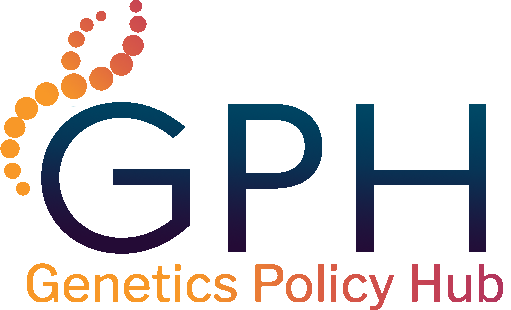From 2004 to 2024, the Health Resources and Services Administration (HRSA) funded the National Coordinating Center for the Regional Genetics Networks (NCC). NCC developed and maintained the Genetics Policy Hub.
With the conclusion of NCC funding, the Genetics Policy Hub (GPH) will no longer be updated or maintained. Information on GPH should be used for historical reference only.
Genome Sequencing
Updated On Sep 19, 2024
This information is meant to be used for educational purposes to inform providers, patients, and genetic service delivery stakeholders about genetics policy topics. Sharing of information, resources, or policy statements is no way an endorsement of stated positions by NCC.
Introduction
Genomic sequencing is a genetic test that can provide information about the nucleotide sequence of an individual’s DNA. (Nucleotide sequences are the building blocks that make DNA.) When people have genetic testing, the scientists typically look at the sequence for a particular part of a gene or genes. Other genetic tests look at most of a person’s “genome” or “exome”. A genome is all of a person’s DNA, while an exome is just the DNA that encodes (is used to make) proteins.
Numerous articles that discuss ethical issues surrounding genome sequencing can be accessed by clicking on each title:
- “Research ethics and the challenge of whole-genome sequencing“
- “Ethical and psychosocial Issues in whole genome sequencing (WGS) for newborns“
- “Ethical issues in medical-sequencing research: implications of genotype–phenotype studies for individuals and populations“
- “Rethinking the ethical principles of genomic medicine services“
- “Ethical issues in consumer genome sequencing: Use of consumers’ samples and data“
A major area of concern is with secondary findings. A secondary finding is an unexpected finding that isn’t directly related to the reason the test was ordered. The more of a person’s DNA that is sequenced, the more likely it is one might uncover a “secondary finding.” An example of a secondary finding follows:
- Steve has incontrollable movements. His neurologist is unsure of his diagnosis and recommends genetic testing. He gives Steve two options: a panel of all of the genes that are likely to cause incontrollable movements or whole exome sequencing (WES). Steve choses WES, which does not determine the cause of his uncontrollable movements, but does show that he has a genetic mutation that puts him at higher risk of developing colon cancer. The high-risk colon cancer mutation is a secondary finding.
Our policy page on secondary findings can be found here.
Legislation and Regulation
There are no laws or regulations that apply specifically to genome sequencing, as opposed to other tests.
Are you interested in learning what your state’s government or the federal government are currently proposing for either legislation or regulation? Check out Legislative/Tracking system for up-to-date information and subscribe to our Twitter channel to get the latest updates in your pocket.
Policy Positions
Organizations working within the genetics community (national genetic organizations, advocacy organizations, etc.) have published positions on genome sequencing. Explore these position statements below.

